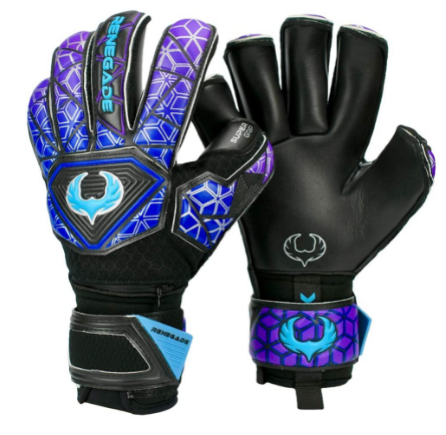Top & Best Skate Helmet glove Review 2022 – How to Select Ultimate Buyer’s Guide
Skate Helmet: How to choose the ideal protection in 2022
Everything in life must be done responsibly, including what entertains. If you agree with this sentence and have fun on four wheels, this text is for you. Let’s talk, after all, about the skateboard helmet, the basic safety equipment for skaters.
Even if it is for your protection, the skateboard helmet remains an accessory. In addition to security, it needs to be comfortable, the right size and, why not, it needs to suit you. And to find that ideal helmet it doesn’t take much: just carefully follow the guide we’ve prepared below.
First, the most important
- The skateboard helmet is the first and only protection of the head against the probable falls and the possible impacts of skateboarding .
- The size of the skateboard helmet is measured by the circumference of the head, at the height of the temples.
- The price of the skateboard helmet varies between R $ 90, in the simplest ones, and R $ 900, in the professionals.
You may also like:
- Skate: What is the best of 2022?
- Children’s Skateboard: What is the best model of 2022?
- Longboard: What’s the best in 2022?
Best skate helmets: The ideal ones for every ride
Below, we have listed the best skateboard helmets on the market, for you to use as a reference, or even to solve your search for your model. Each item was evaluated based on the most important characteristics of the product, such as safety, comfort and cost-benefit.
- The semi professional skate helmet
- The safest helmet model
- The most versatile helmet
Shopping Guide
The real skater knows that the helmet is not only useful, but it is necessary. It is what separates an ugly fall from a hospital case. More than protection, the equipment gives the skater the peace of mind to do his tricks and learn from his falls.
The skateboard helmet can also be a fashion item, to be ornamented, adhesive, designed, just like the skateboard itself. In this Purchasing Guide, we will pass on the most useful information about the equipment, from safety to customization, as well as tips and everything else that can help you choose your helmet.
Why wear a skateboard helmet?
The skateboard helmet is simply the only protection for your head against all threats and possible damage when skateboarding. Not that skateboarding is this deadly activity, but any damage to the head is infinitely greater when it is unprotected.
The biggest risk when skating is falling, because, and every skater knows this, it will always happen. But, as the sport puts the user in urban environments, at high speed and even at great heights, any other impact can be dangerous.
With a helmet, all this risk is minimized, if not eliminated. Falls are just falls. They hurt, ashamed, but that’s all. Good, isn’t it?
What is the difference between a skateboard and a bicycle helmet?
There is a classic polarization between skate and bicycle. After all, they are the two biggest sports on wheels, the most popular, the most practiced. Thus, it is natural to arise a doubt between the difference between skateboard helmets and bicycle helmets.
There are two very different helmets, because they have different purposes and offer different protections. The skateboard helmet, which is round and has a smooth surface, focuses its protection on the back of the head, the most common place of impact on falls, and is designed to withstand several small falls, which is also the most common in the sport .
Did you know? More recently, both skate and bicycle helmets use ABS thermoplastic resin in their hull, the same used in motorcycle helmets.
Bicycle helmets, or at least the most common, have a different shape from skateboarding, almost fusiform – elongated, narrow at the tips and thick in the center – and with layers on the surface. The idea of these helmets is to have a material that resists a big impact, usually breaking or cracking in the process.
How is the children’s skateboard helmet?
The children’s skateboard helmet has no structural difference from adult helmets. After all, the heads are the same – in fact, children’s heads are even more delicate.
The same materials are used in the hull and inside, such as ABS resin and EPS foam, and the adjustments follow the same logic.
The biggest possible changes are in the look, with more colorful models and / or printed with figures from the children’s universe, and in the models with simpler materials, aimed at very young skaters, who can barely expose themselves to greater impacts.
Where to find a custom skateboard helmet?
Although the use of the skateboard helmet is extremely important, we must agree that it is not exactly pleasant. The buckle on the chin, the accumulated sweat, the weight, in short, its use has unpleasant parts.
But there is a creative way to make helmet use more enjoyable, personalization. If you’ve seen a skateboard tournament, you may have noticed that most competitors have helmets all decorated with designs and stickers.
Although many of these props are there for advertising, others are there for their own expression, for art. And you can do that too. And who knows? There will be some boss left for you …
Most skateboard helmets are conducive to personalization. Just be smooth. Better yet, they are light in color, so you can draw too, and the holes for “breath” are smaller.
You can find this type of helmet in most stores, but you can find a greater variety of prices and models on shopping sites, such as Amazon and Mercado Livre.
How much does a skateboard helmet cost?
There is a wide variation in prices for skateboard helmet models. There are different levels of protection, materials, designs, all of which contribute to this higher price range.
You can find more basic models, many of them for children, but of quality, still, starting at R $ 50. Professional models and for more advanced skaters, cost up to R $ 900.
Purchase Criteria: How to choose your skateboard helmet
Our last list will give that strength at the time of purchase, be it in a physical store, on a website or via application. Each item below talks about an important feature of the skateboard helmet, which, if carefully noted, serves as a great criterion to aid your choice.
- Modality
- Chin
- Size
- Material
Modality
One of the first points to think about before choosing your helmet is the type of skate that you practice / intend to practice. Some modalities require greater protection than others, and some even have specific helmets.
All modes require a helmet, but a street tour , for example, requires less helmet protection than track maneuvers, for example. In the sphere of radical skateboarding, like Downhill , the helmet needs not only to be more resistant, but also needs a visor, like motorcycle helmets.
Chin
Needless to say, your helmet needs a good chin, right? A loose helmet is just as useful as a skateboard without wheels.
The issue is the quality of the chin.
The issue, in fact, is the quality of the chin, treated here as the entire adjustment and fixation system of the helmet. In other words: it is necessary to check if the materials of the ribbon and buckle are resistant.
Nylon tapes are a good choice; the sturdy plastic buckles, too. For the adjustment, the ideal is to try the model in a store, but a good solution for online purchases is to observe the quantity and width of the ribbon.
Size
The size of the helmet is another essential point, both for your comfort and your safety. Only a helmet in the right size can be properly adjusted; and only a well-fitting helmet can truly protect.
There are three sizes of skateboard helmets, and correspond to the circumference of the wearer’s head, measured with a flexible tape measure about 1.5 cm above the eyebrows and ears:
- Small – Between 52 cm and 56 cm;
- Medium – Between 56 cm and 60 cm;
- Large – Between 60 cm and 64 cm
If your measurement falls between two size categories, the safest option is to choose the largest size, even for greater comfort.
Material
A skateboard helmet can only be safe if its materials do guarantee security. So, be very careful about the materials that make up your next helmet.
The ideal is that the model has a triple protection, with resistant materials in the external part, in the internal part and with foams as a shield between the structure and its head.
A good choice for the external part is ABS, which is not the brake, but a high resistance thermoplastic resin. Inside, EPS (expanded polystyrene), which protects from impacts and thermally insulates is also a great option.





